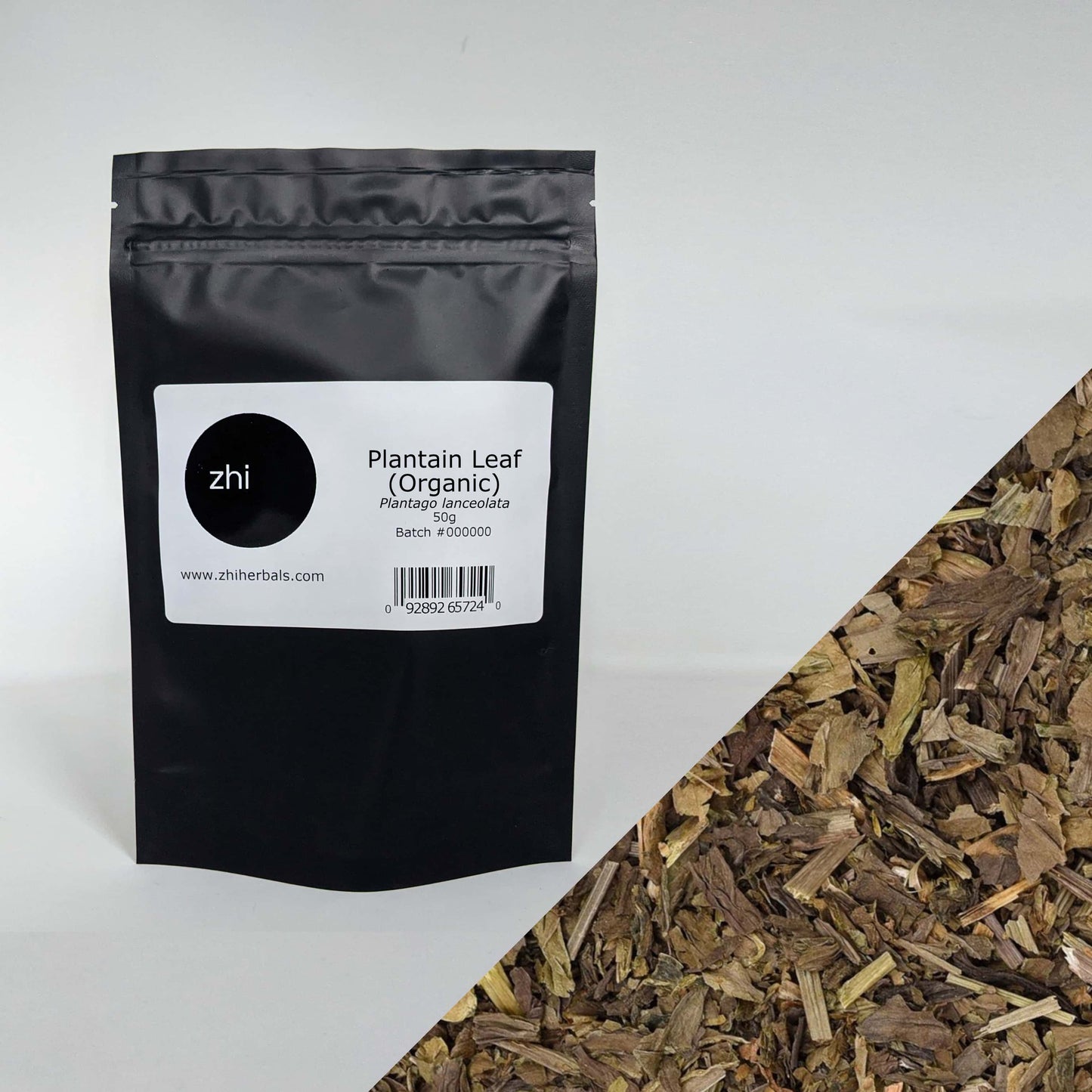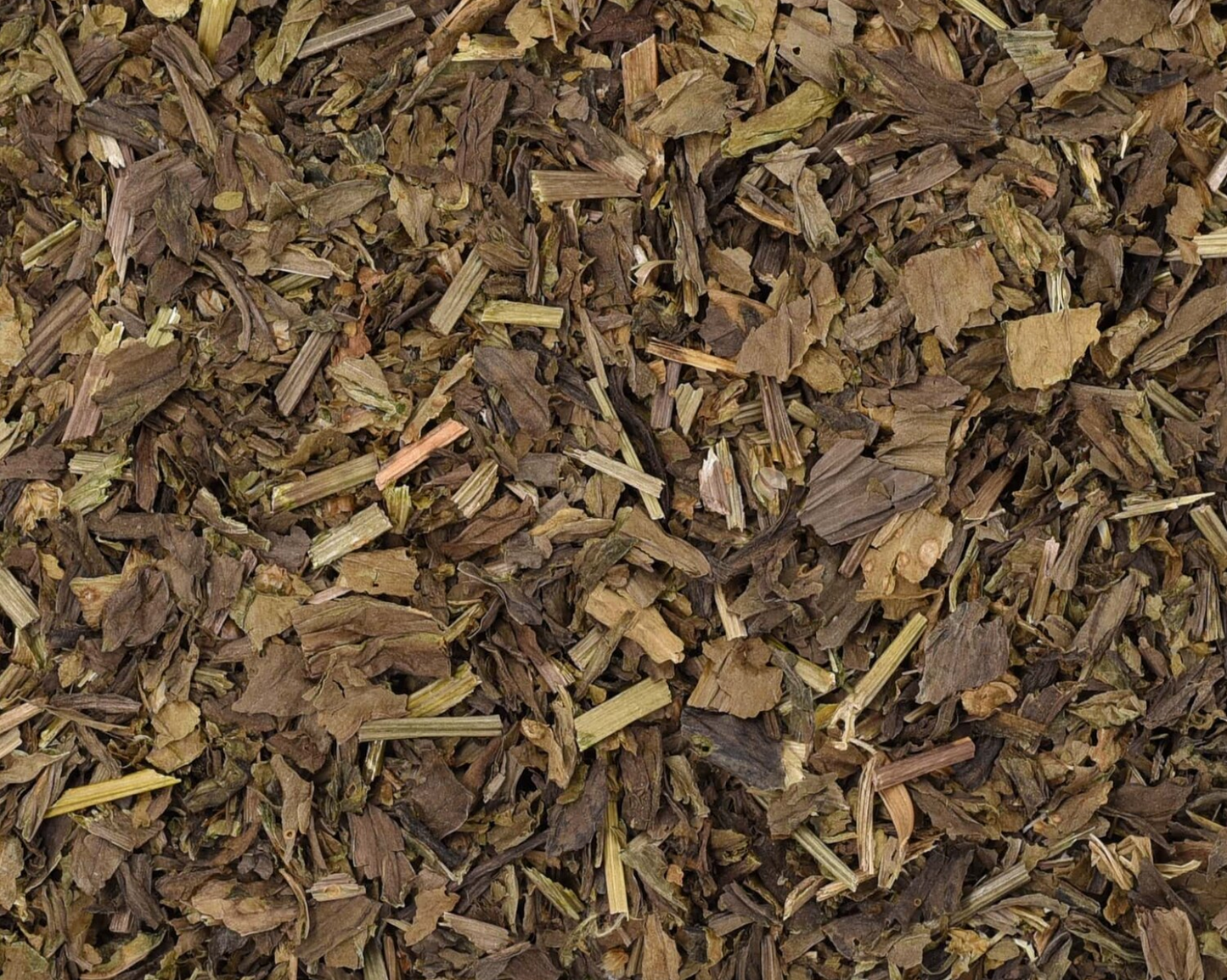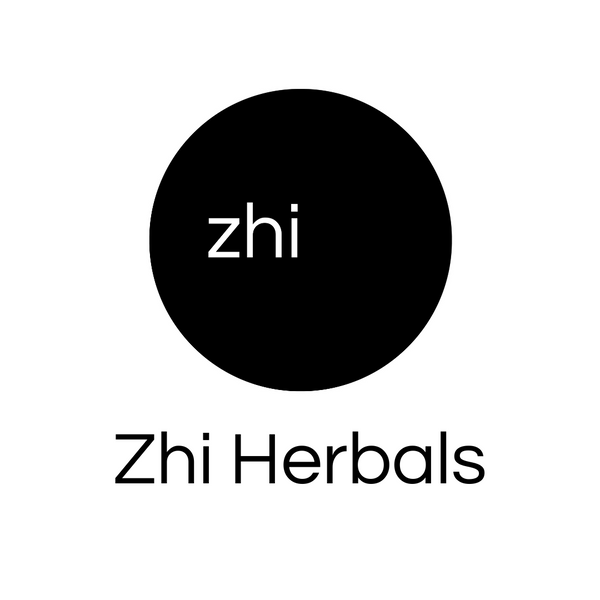Zhi Herbals
Plantain Leaf (Organic)
Plantain Leaf (Organic)
Couldn't load pickup availability
Common Name
Plantain
Latin Name
Plantago lanceolata
Origin
Albania/Croatia/Poland
What Is Plantain Leaf?
Plantain is a leafy green herb that is naturalized in many parts of the world. Many gardeners see plantain as a garden weed and are unaware of its benefits. When infused as a tea, plantain leaf produces a deep green tea with an earthy and slightly bitter flavor.
How to Use Plantain Leaf (Common Uses)
Plantain leaf can be taken internally as a tea, powder, capsules, or extract, or used topically. The fresh plant may be eaten in salads. Visit our herbal blog for more ideas about how to use plantain leaf.
Medicinal Uses and Benefits of Plantain Leaf
Plantain is well known for its powerful healing abilities. It is anti-bacterial, anti-inflammatory, astringent, expectorant, anti-hemorrhagic, diuretic, vulnerary, and an excellent connective tissue tonic. The most common uses of plantain are for internal and external tissue healing, including use for digestive issues and wounds. Plantain has a tendency to grow in densely packed soil and to draw nutrients from the ground, and in the same way it is excellent and drawing unwanted objects from the body. Plantain placed on top of a splinter or a venom-filled bee sting will help to draw out and reduce the problem. It is often used in combination with other herbs for issues involving the lungs, such as coughs and allergies. Taken internally plantain will have the same drawing outwards effect on the lungs, helping to remove excess mucus.
Active Constituents in Plantain Leaf
Mucilage, acids, iridoid glycosides, tannins, flavonoids, choline, allantoin, minerals.
Notable Facts About Plantain Leaf
The Saxons considered plantain to be one of their nine sacred herbs, and it is often considered the ‘mother of herbs’.
Share


Great product, I ordered 6 different herbs and all shipped at the same time and here within 3-4 days of delivery. All of them smelt amazing like I picked and dried them myself. Highly recommended
Great quality product, great customer service and fast order fulfillment and shipping. Thank you, I will be ordering again!
Nothing to complain about, I will order again
As described


